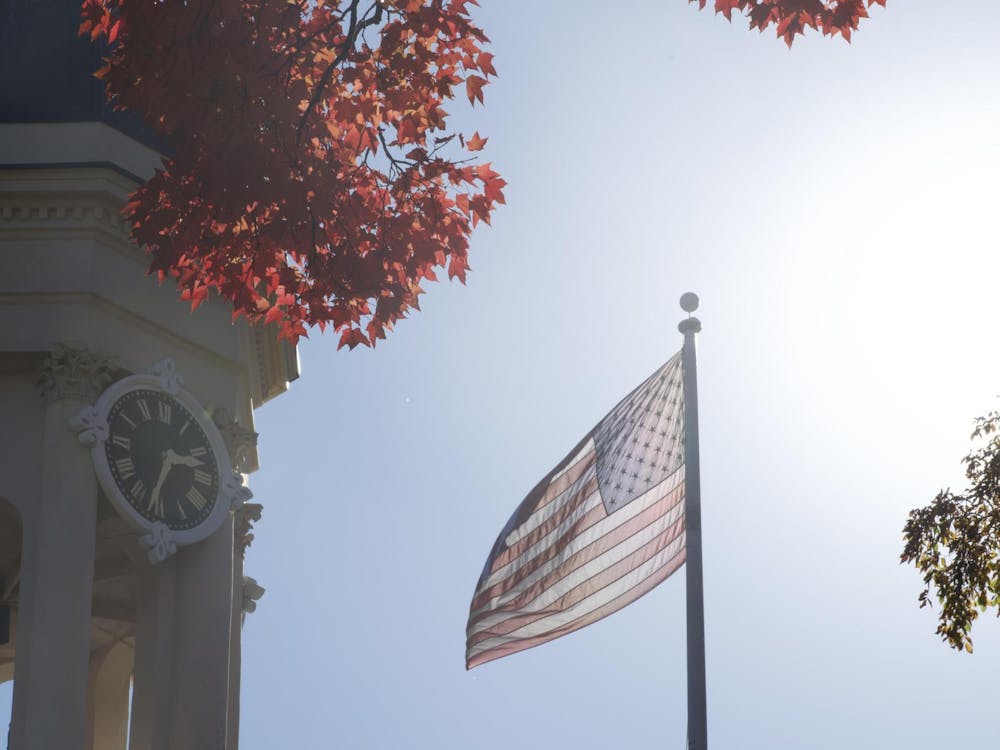Doctors across the nation are notifying their patients that the arrival of much of the influenza vaccine — important to the elderly and those with chronic illnesses — has been delayed.
The University's McCosh health center, though, has plenty.
"We're lucky," said Helen Ackley, the coordinator of travel and immunization at McCosh. "When I placed my order for the vaccine, it was with a company that had supplies."
With flu season beginning, doctors typically encourage their patients to be vaccinated. But production delays at some pharmaceutical companies have left hundreds of hospitals and medical centers without sufficient amounts of the vaccine.
The production delays were caused by a shortage in one of the vaccine's chemical components, which led to a production shutdown by two of the four vaccine manufacturers.
But to get the vaccine for McCosh, Ackley placed her order last spring with Aventis Pasteur, Inc., which happened to have no difficulties manufacturing the vaccine — a process that takes several months.
Yale University's Student Health Center also ordered its flu vaccine in advance from Aventis Pasteur, and thus had an abundant supply of vaccine, according to Robin Levanduski, a nurse in the immunology department at Yale.
Mike Goodkind, an information officer at Stanford, said vaccines for his university's health center were expected to arrive late, but ended up coming early.

Other medical facilities have not been as lucky as McCosh. Dr. Khyati Gokli, medical director of employee health services at Princeton Medical Center, said the hospital has seen a 15-percent decrease in the amount of available vaccine since last year.
Gokli said PMC officials were forced to administer their limited vaccine supplies only to hospital employees deemed to need it most acutely, such as those who have direct contact with patients.
PMC, like most hospitals, does not typically administer flu vaccines to its patients. Private physicians usually provide that service.
The Centers for Disease Control and Prevention has recommended that, because of the shortage, high-risk patients — such as the elderly or people with immune-deficiencies — should receive their vaccines first.

"The CDC is distributing the vaccine to employees in two phases," CDC spokesman Chuck Fallis said. "In the first phase, only high-risk employees receive the vaccine. At a later date, the healthy people will."
According to Fallis, vaccine manufacturers say they shipped 28 percent of their supply orders in October, will ship the next 42 percent this month and will distribute the remainder next month.
The CDC recommends that everyone be vaccinated, even into late January, because the flu season can last into April.
Ackley said though she understands the CDC's recommendation, she cannot offer the University's supply of vaccine to elderly or immuno-deficient members of other communities for liability reasons.
"We notified students with chronic illnesses before the public," Ackley said. "We do vaccinate live-in partners . . . and family members of employees because they're part of the community."
Though the CDC recommends that high-risk patients be vaccinated first, Fallis said, "It's not our recommendation that healthy people be turned away."
Ackley stressed the importance of administering flu vaccines to University students because of their close living quarters. "The more people vaccinated, the less likely it is that there will be a flu epidemic," she said. "Last year, we gave one-third more vaccines, and there were two-thirds fewer flu cases."
So far, McCosh has vaccinated about 725 employees and 650 students, and still has about 700 doses, which are available for $10 by appointment.
And VACCESShealth will be on campus Nov. 28 to offer students influenza and meningitis vaccines.







